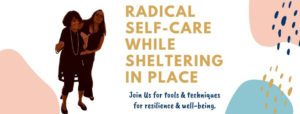
I’m sure you thought that drive in theaters were a thing of the past. I’m pretty sure my grandchildren have never gone to one. When I was a kid we’d dress in our pajamas and my Dad would drive the whole family to the outdoor movies, just before nightfall. The little kids would fell asleep during the movie, and when we got home, Dad would take them directly to their beds.
Now we see that staying in our cars for church services and funerals can be a creatively improvised way for families to socially distant, while still coming together to celebrate the life of a loved one and have mutual support as they mourn. It seems that this need to change rituals and processes for funerals and bereavements is sparking creativity while helping us appreciate what we had and what’s most important to us.
First off, missing the opportunity to accompany a loved one as they cross from this life is a tragedy in itself, both for the person dying and for their family members. If you’ve had the experience of accompanying a loved one as they move back and forth “between the worlds,” as the native peoples describe it, you would say, as I would, that this was a highlight in your life and in your relationship with that person.
Last January a dear friend came home, still in an altered state from the Christmas holiday where she had accompanied her 90 year -old father as he died. She spoke of the blessing of it, to be able to let go of him as he let go of life. Now in the pandemic, her mother is in an assisted living memory care facility, at high risk for the virus, and my friend cannot be with her now, or with her if and when she becomes ill.
The curtailment of ceremonies afterwards is another tragedy that denies the surviving friends and family members support and experiences that offer inspiration and hope in their ongoing grieving process. Twenty-five years ago I accompanied my best friend Rose, at her request, throughout what turned out to be 14 days of her dying in a hospital of breast cancer. It felt a sacred journey, the deepest of intimacies. I often say, “There is nothing that has happened in my life since then that I don’t already know what Rose would say about it.”
This experience prepared me a few years later, to accompanying my 31-year-old son as he died from AIDS in the living room turned into the dying room of our home. Though it was 23 years ago, I still remember sitting next to my husband at the end of my son’s service, feeling reluctant to leave. Ken’s friends and family had told stories about him, giving me a kaleidoscope of images of him and his life beyond our relationship. I commented that “every molecule of air in this room is so full of love, I wish I could stay here forever.” My husband’s answer stays with me still – “Well, that’s where Ken is now.”
What do we need in the aftermath of a significant person loss and how can we get some version of that now?
From ancient times until now, people have been gathering together to support one another when there is a death in the community. These gatherings strengthen family and community bonds, assuring us that we are not alone and that life goes on. The rituals designed and performed by our ancestors soothe our sorrow and our souls. No matter when or how a person dies, connection with others who love them is a healing balm.
I started off with the drive-in theater version of a funeral but there are other possibilities in these days. It’s harder for elders sometimes to be open to this but as an elder I can say, a zoom funeral is better than none at all. In fact, just before the world shut down, my far-flung family had a funeral whose service was live-streamed. Members of our family that could not travel attended on their various devices from around the country. We were even able to share my niece, Heather’s “warrior mother” address to her recently deceased son’s school community with people from around the country.
Desperate times call for creative measures. Sitting Shiva in front of a computer with friends dropping in on-line? Not as good as in person but turns out love gets communicated over the Wifi lines. Here’s an example I found on line.
I thought about my own cultural heritage. Could we have Irish Wakes on Facebook Live? I found an article in the New York Times that described an Irish funeral in Ireland.
Community members, instead of meeting in the church or visiting the home which would have been the usual practice, lined the street between the church and the cemetery. Keeping their social distance from one another, as the casket was transported on the road between them, they sang the woman home.
Whether we adapt traditional rituals or recreate some anew, what is certain in these uncertain times is we will do our best to honor the lives of those that are leaving while safeguarding the lives of those left behind.
Stay safe till next time,
Sheila
Offerings and Events
– The Reimagine Festival – Life, Loss and Love (during a pandemic) My co-author Christine and I have become presenters at a worldwide virtual festival community exploration of big questions about life and death.
Our first offering, Radical Self-Care During A Pandemic will be Sunday May 3rd at 4 pm eastern. Love to have you join us. Here’s the link to register
– InterPlay On-Line – Friday mornings at 10:30 am eastern
http://zoom.us/j/3701856662 no passcode
– Looking for a personal consultation as you navigate this liminal time? Call me at 817-706-4967 or drop me a line at sheilakcollins@gmail.com
Our Tuesday Radical Self-Care class is at 11:30 am and the link is http://zoom.us/J/7702569191


